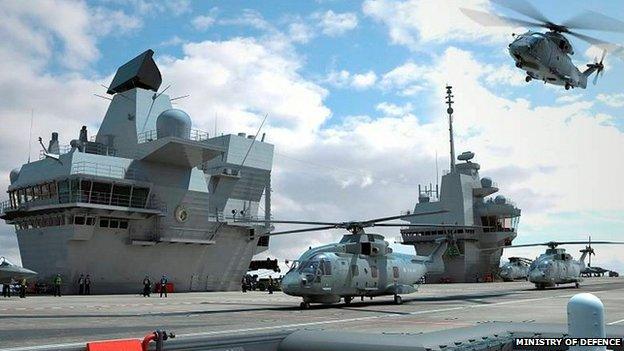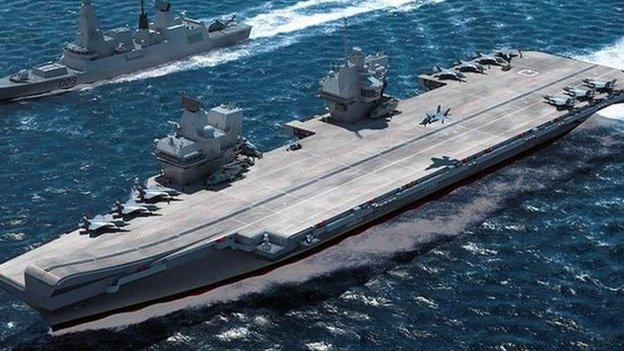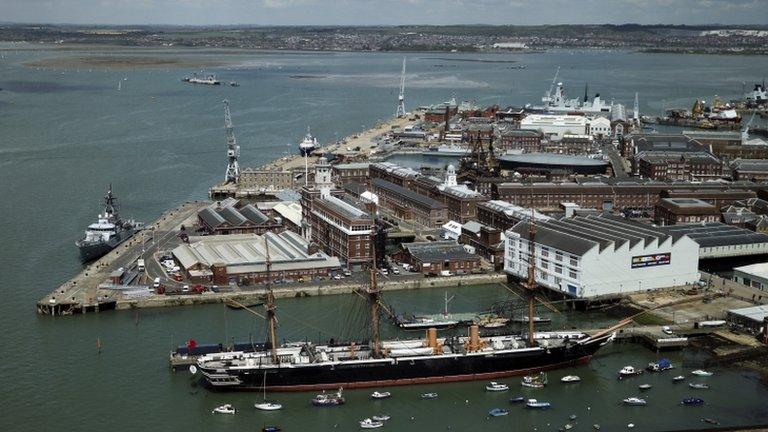Aircraft carriers prompt Portsmouth power cuts concern
- Published

HMS Queen Elizabeth the 65,000-tonne ship will become Britain's biggest-ever carrier
The lights could go out in Portsmouth if the city's demands for increased electricity are not resolved, its council leader has said.
Gerald Vernon-Jackson has written to Energy Secretary Ed Davey over fears the city, already nearing capacity, will face power cuts in the future.
The situation will be exacerbated by the arrival of two new Royal Navy carriers, he added.
HMS Queen Elizabeth and the Prince of Wales will plug into the city's supply.
Southern Electric Power Distribution said the network was more than capable.
A spokesman said: "We would like to reassure the people of Portsmouth that the local electricity network capacity meets all industry regulations and there is no risk of the lights going out due to lack of network capacity."
'Go dark'
In 2011 a series of power cuts affected the city, including one black-out which plunged its football ground, Fratton Park into darkness mid-way though a match.

One power cut in 2011 halted a game at Fratton Park
In June 2010, 47,000 customers lost power for up to 24 hours.
Mr Vernon-Jackson said he anticipated at peak times, when the warships were docked, the city would "go dark".
The Liberal Democrat states in his letter that the city has a capacity limit of 90 mega volt ampere (MVA) and at peak periods demand already reaches 86 MVA even without the new warships.
He has urged Mr Davey to bring pressure to energy supplier SSE "to recognise their duty, and to come to the table positively with a strategy and a solution".
Plans for a power station in Portsmouth Naval Base have also been discussed, according to the city council, but so far no decisions have been made.
A Ministry of Defence spokesman said: "We are investing more than £100m to accommodate the flagship vessels which, alongside the Type 45 Destroyers, will help sustain jobs in Portsmouth for years to come."
HMS Queen Elizabeth and its sister ship, the Prince of Wales, are due to arrive in the city in 2017.
- Published22 February 2014

- Published12 July 2013

- Published7 January 2011